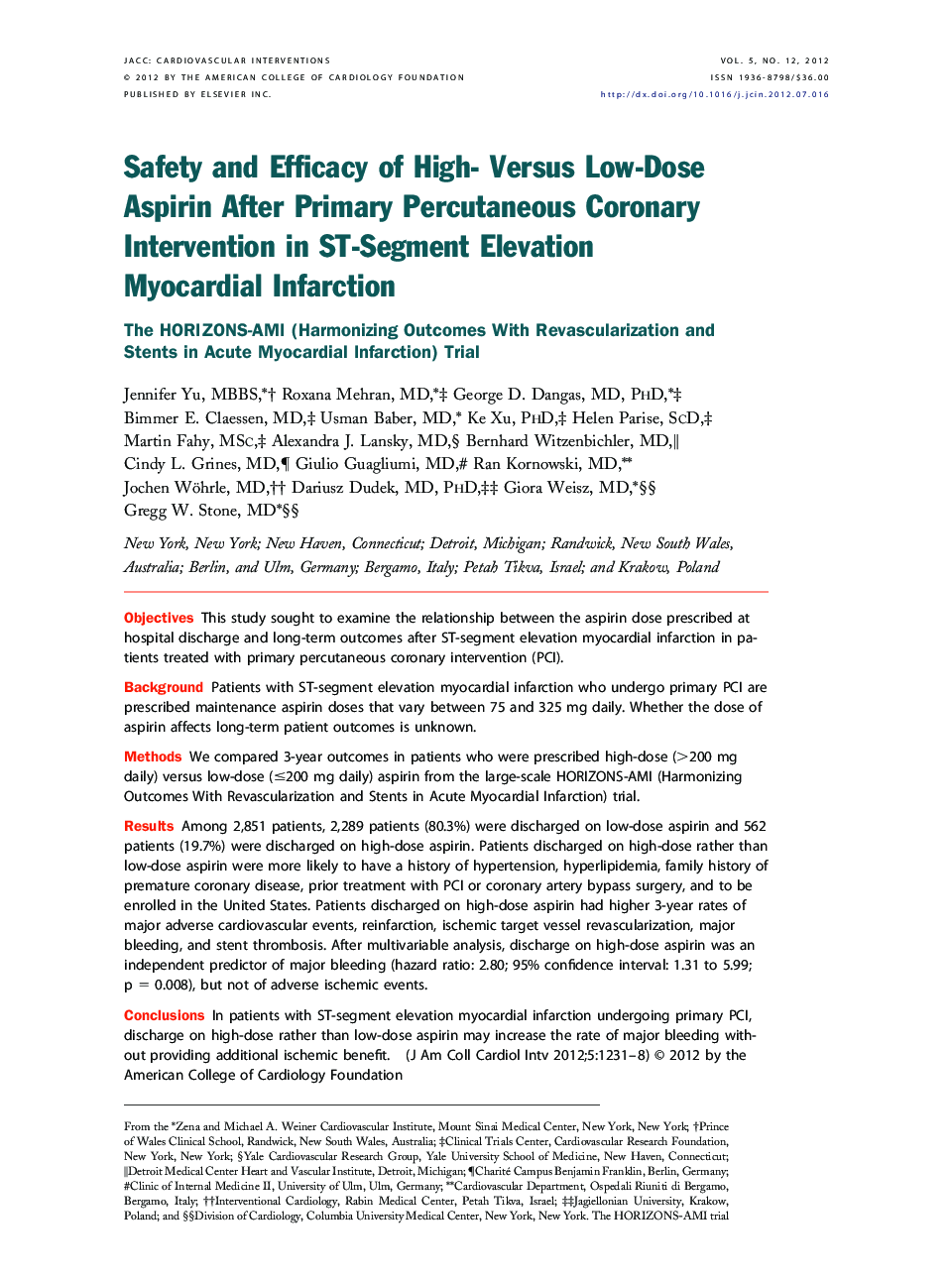| کد مقاله | کد نشریه | سال انتشار | مقاله انگلیسی | نسخه تمام متن |
|---|---|---|---|---|
| 2940769 | 1177042 | 2012 | 8 صفحه PDF | دانلود رایگان |

ObjectivesThis study sought to examine the relationship between the aspirin dose prescribed at hospital discharge and long-term outcomes after ST-segment elevation myocardial infarction in patients treated with primary percutaneous coronary intervention (PCI).BackgroundPatients with ST-segment elevation myocardial infarction who undergo primary PCI are prescribed maintenance aspirin doses that vary between 75 and 325 mg daily. Whether the dose of aspirin affects long-term patient outcomes is unknown.MethodsWe compared 3-year outcomes in patients who were prescribed high-dose (>200 mg daily) versus low-dose (≤200 mg daily) aspirin from the large-scale HORIZONS-AMI (Harmonizing Outcomes With Revascularization and Stents in Acute Myocardial Infarction) trial.ResultsAmong 2,851 patients, 2,289 patients (80.3%) were discharged on low-dose aspirin and 562 patients (19.7%) were discharged on high-dose aspirin. Patients discharged on high-dose rather than low-dose aspirin were more likely to have a history of hypertension, hyperlipidemia, family history of premature coronary disease, prior treatment with PCI or coronary artery bypass surgery, and to be enrolled in the United States. Patients discharged on high-dose aspirin had higher 3-year rates of major adverse cardiovascular events, reinfarction, ischemic target vessel revascularization, major bleeding, and stent thrombosis. After multivariable analysis, discharge on high-dose aspirin was an independent predictor of major bleeding (hazard ratio: 2.80; 95% confidence interval: 1.31 to 5.99; p = 0.008), but not of adverse ischemic events.ConclusionsIn patients with ST-segment elevation myocardial infarction undergoing primary PCI, discharge on high-dose rather than low-dose aspirin may increase the rate of major bleeding without providing additional ischemic benefit.
Journal: JACC: Cardiovascular Interventions - Volume 5, Issue 12, December 2012, Pages 1231–1238